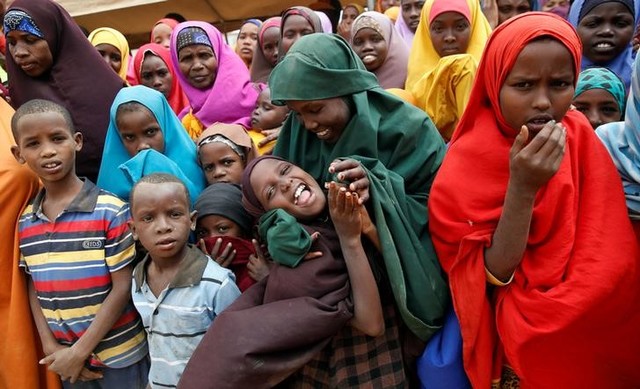Refugee programs in East Africa facing crisis over funds cut


By Fauxile Kibet
Aid programs in East Africa may be forced to shut down following a cut down of funds for refugees by western governments.
The Norwegian Refugee Council now warns the budget cuts are hitting the East Africa aid sector hard adding that if more funding isn’t found, malnutrition will rise, schools will close, and water-borne diseases will break out.
“Rich nations should step up to support countries that are still accepting refugees. We have a window to avoid a refugee catastrophe in East Africa if we act now,” warned Nigel Tricks, Regional Director of the Norwegian Refugee Council (NRC).
The Humanitarian organization notes that in Kenya, this year’s UN humanitarian appeal, which partly funds NRC, has received only US$97 million, down from $340 million in 2017. Further, it observes that funding cuts have forced a sharp reduction of education, water, and livelihood programmes for refugees.
“With current funding NRC will help about 149,000 fewer refugees this year. This includes 41,000 people that will receive less support from livelihood programmes such as skills training. Kenya hosts 413,000 refugees, mainly from Somalia and South Sudan.”
NRC adds that in Uganda, this year’s UN aid appeal has only received $158 million; down from $346 million in 2017 and that funding cuts have forced a sharp reduction of NRC’s programmes for education, shelter, water and sanitation.
“The refugee camps in Kyangwali are chronically under-funded, where a shortage of clean water and sanitation helped lead to a cholera outbreak earlier this year. Uganda hosts 1.47 million refugees, mainly from South Sudan and DR Congo,” observes the organization.” In Tanzania, NRC notes that this year’s UN humanitarian aid appeal has received only $24 million, down from $88 million in 2017.
“NRC funding has been sharply cut for camp coordination and camp management. With current funding NRC will help about 121,000 fewer refugees this year. Tanzania hosts 340,000 refugees, with most from Burundi.”
XENOPHOBIA
The humanitarian organization points out that xenophobic policies are pushing migrants out of Europe and the US. Refugee and migrant arrivals in Europe dropped from 362,000 in 2016 to 178,000 in 2017.
2018 saw a further cut in refugees going to Europe, with only 35,000 arrivals across the Mediterranean from January to May – half the number for the same period last year.
In the US, the annual entry limit of 110,000 refugees was slashed to 45,000 by the Trump administration, while East African nations continued to host over two million refugees.
At the same time, many rich nations have made drastic cuts to aid funding that help refugees survive inside Africa. United Nations humanitarian appeals for Uganda, Kenya and Tanzania have been critically underfunded this year. The funding across all three countries has dropped an average of 64 per cent compared to last year’s levels.
As a result, lifesaving programmes have been forced to shut down, with further closures and scale-downs planned. Conditions are deteriorating in many refugee camps, with less food, clean water and other vital services available for refugees.